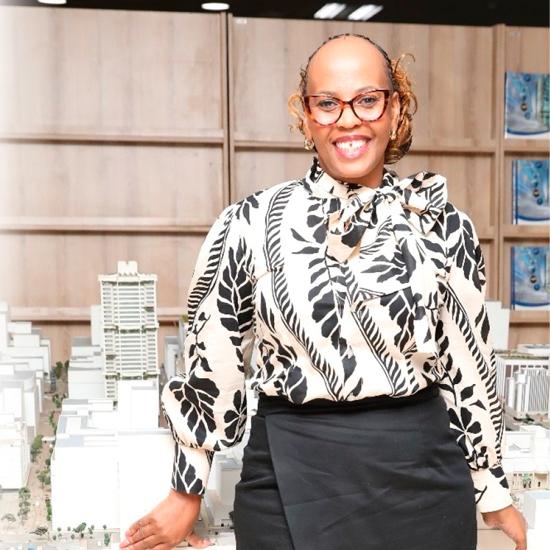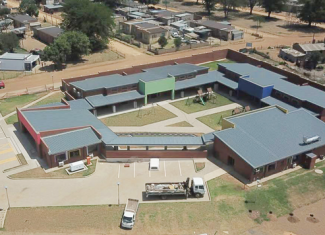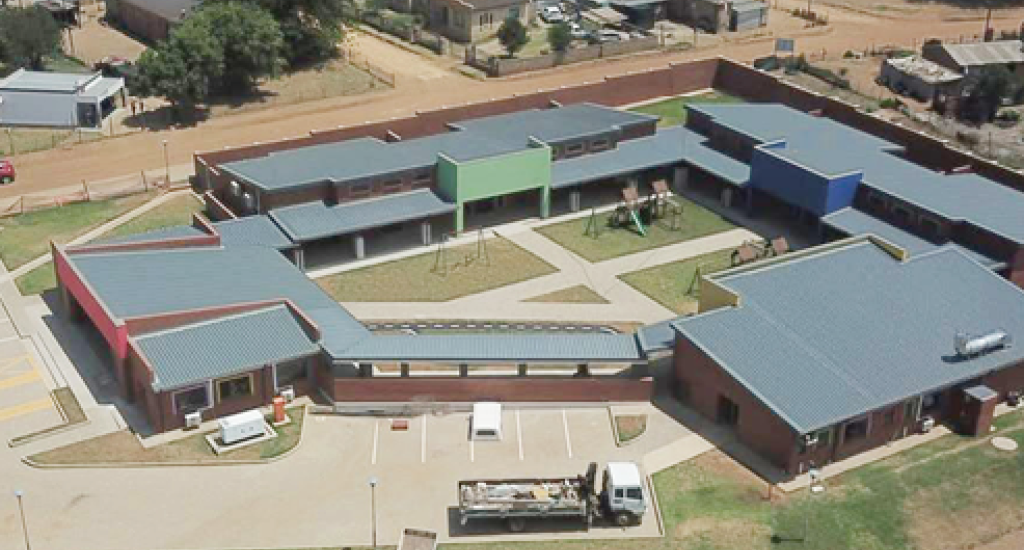Neo Morake
builds blueprint for equitable development

In the corridors of the Gauteng Department of Infrastructure Development (GDID), Deputy Director-General Neo Morake is a force of nature. She is a leader committed to turning policy into tangible progress and ensuring that public assets serve as instruments of transformation.
“My role is anchored in three strategic levers of change: redress and inclusion, policy reform and sector-wide change,” she explains. “This ensures that state assets not only meet current service delivery needs but also contribute meaningfully to redressing historical inequities.”
The GDID is responsible for delivering public infrastructure and managing the province’s property assets. It oversees the entire lifecycle of fixed property owned by the Gauteng Provincial Government, from acquisition and maintenance to disposal.
As the sole implementing department for the planning, design, construction and commissioning of SMART public infrastructure, the GDID ensures that projects meet the highest standards of functionality, reliability and compliance through professional facilities management services.
In addition to its infrastructure mandate, the department plays a key role in stimulating economic development and creating jobs by driving targeted, preferential procurement and supporting the growth of small, medium and micro enterprises. It also coordinates the Expanded Public Works Programme across the province, contributing to both social upliftment and economic inclusion.
Dedicated public service
Morake's recent recognition among the South African Institute of Black Property Practitioners’ (SAIBPP) Top 100 Public Sector Leaders is, to her, not an individual milestone but a reflection of collective effort.
“This recognition is deeply humbling. On a personal level, it reaffirms the value of perseverance and the power of collaborative work. Professionally, it highlights the importance of public sector leadership in driving equitable development. This is not merely an individual accolade; it is a testament to the commitment of my team members, who have worked tirelessly alongside me to transform policy into tangible progress.”
Promoting home ownership
That transformation has taken concrete form through a series of initiatives under her leadership. Among them is the disposal of 53 non-core residential properties to previously disadvantaged individuals, a move she says “directly advanced economic transformation and promoted home ownership,” while also reducing state holding costs and contributing to wealth creation.
She also led the development of a property portfolio optimisation framework designed to identify underperforming assets, alleviate fiscal pressure and unlock opportunities for strategic repurposing. “We strengthened internal governance mechanisms and aligned property management policies with GIAMA and industry best practices to ensure compliance and accountability,” she adds.
Coaching and mentoring
Morake places significant emphasis on building capacity from within. “Recognising the need to build institutional capacity, we prioritised coaching and mentorship as key drivers of professional development in property management. In partnership with HR (Human Resources), we established a structured coaching programme, beginning with our management team.”
For her, leadership is as much about values as it is about technical skill. “My leadership philosophy is grounded in empathy, recognising that people are at the heart of public service. I prioritise active listening, leverage the unique strengths of my team and offer guidance that empowers individuals to thrive.”
Overcoming challenges
Her journey has not been without obstacles. “Early in my career, I encountered dismissive attitudes and resistance, particularly because I am not an engineer. I was often overlooked in meetings or stereotyped based on my gender. I overcame this by mastering my technical expertise and forging relationships with those who valued merit. Today, I use my platform to amplify women’s voices, knowing that representation alone is not enough. We must actively share power and create opportunities.”
She believes women bring unique value to the built environment. “Women bring critical perspectives to sustainable design by focusing on community needs, social impact and human-centred planning. As nurturers, we help create environments that foster well-being and social cohesion. When women lead, projects become more inclusive and responsive to the needs of marginalised groups, challenging stereotypes and advancing equality.”
Currently, Morake’s focus includes revitalising the Johannesburg CBD through partnerships with the City of Johannesburg, the Johannesburg Property Company, the private sector and professional bodies. “We are also implementing cost-saving initiatives to optimise utility use, repurpose underutilised assets, and unlock commercial opportunities.”
Advice to young women
She offers clear guidance to young women aspiring to enter the sector: “Master your field. Seek mentors and coaches who can help guide your professional and personal journey. Stay true to yourself – do not shrink to fit in. Your perspective is valuable and necessary. Most importantly, never apologise for your ambition. The sector needs your voice to help redefine what is possible.”
Looking ahead, her aspirations extend beyond personal achievement. “I aspire to leave a legacy that blends integrity with meaningful public service. For women, I envision a future where leadership is commonplace; where our daughters can enter the sector with confidence and ambition. My hope is to see a built environment that restores dignity and provides opportunity for every South African.”




